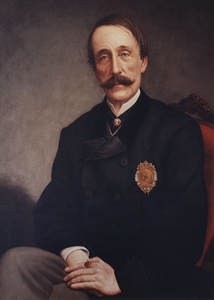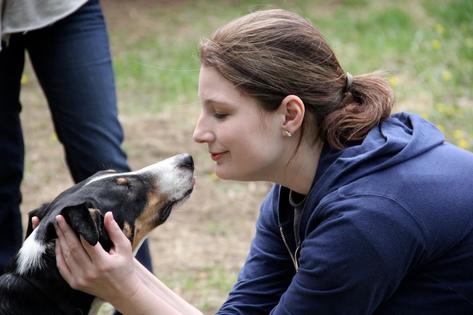 I have always considered myself an animal person. I grew up in an animal integrated household and my siblings and I were taught from an early age that all life has value. We always had rescued pets in our house and some years we had many of them. For much of my adult life, I considered myself fairly well educated on general animal issues. Like most people, however, I lived inside the bubble of my own reality. It wasn't until 2006 after we had our dog euthanized to prevent her from suffering that I had a personal epiphany about what happens in our nation's animal “shelters” using our money and for which we are blamed: the killing of millions of healthy and treatable animals. When Nathan Winograd published his ground breaking and controversial book in 2007, I was further changed. I still consider “Redemption: The Myth of Pet Overpopulation and the No Kill Revolution in America” to be compulsory reading for any animal welfare advocate. The content is just as valid today as it was ten years ago. As I have said before, Nathan did not “invent” the animal protection movement or even the No Kill movement as we know it today. That process began more than 100 years ago with Henry Bergh who founded what we now refer to as the American Society for the Protection of Animals. If you have not seen the documentary film which is based on Redemption, I really encourage you to watch it. Much like the book, the film is as much a history lesson as anything and it helps you understand how we got from a time in 1866 when Bergh was changing hearts and minds regarding compassion toward animals to our present reality of killing millions of animals. We kill far fewer shelter animals now that we did a few decades ago, but millions are still at risk each year and thousands die each day using our money. Since the time I became a No Kill advocate years ago, my views on the subject have really not changed at all. I think it is unethical for us to house animals in places we call shelters and then use tax dollars and donations to destroy healthy and treatable animals. As Nathan Winograd once pointed out, if we had never killed animals in our nation's shelters, but we started doing it today, what would people say? There would be incredible outrage for sure. The public would speak out en masse and the killing would stop. It is incredibly unfortunate that many in our society somehow tolerate or forgive the killing just because it has been going on for so long that people think there is no other way. We have been told so many times that the killing is due to a “pet overpopulation” problem that we don't question it. Animals don't die in shelters because of pet overpopulation. They die in shelters which are overpopulated with pets because the shelters have failed to embrace the very programs of the No Kill Equation set forth in Redemption more than ten years ago (and which have been known for much longer than that) to stop the archaic and outdated practice. For No Kill advocates, ending the killing of shelter pets is like drawing a line in the sand. You draw that line and then you do not cross it. You do not go back to the old ways no matter what. I have stood the line to end shelter killing for over a decade. I have stood that line along with contacts of mine from across the country too numerous to name. We are the animal welfare advocates in the weeds of grassroots reform and we speak with one voice, for the most part, as we seek to end shelter killing. Most of us promote the No Kill Equation because it can be molded and shaped to fit the resources of any community and because it has been proven to work in every place where it has been comprehensively implemented. Some of us promote the same programs of the equation even if we do not refer to it using the same terminology. We seek a time when the needless killing of pets in our shelters ends and we seek it with a sense of urgency. We all promote diplomacy in communities with regressive shelters which are still destroying animals needlessly. Although there is no polite way to say, “please stop killing animals,” we have always encouraged people to do what we call “the ask” first in an effort to gain the cooperation of shelter leadership and municipal officials toward changing the culture in shelters as a first option. There is truly no point in expending energy on what amounts to political advocacy if it's not necessary. In my own case, I wish the ask had worked. The path taken would have been much faster and much smoother if everyone could have cooperated from the start. The ask was denied and this led to years and years of struggle in which far too much energy was spent defending the continued killing when that same energy could have been used to stop it. There was a recent exchange on the social media page for an organization called No Kill Movement, of which I am a member. I, and other members of the organization, were referred to as a “radical wing” of No Kill shelter reform. At first I was confused by this and then I kind of laughed. Now I find myself both amused and annoyed. There is nothing radical about the No Kill philosophies I promote. And I have not changed in that regard in a decade. I would actually argue that I have become more tolerant and more diplomatic in how I interact with municipal officials and shelter officials because I have learned over the years which tactics work better than others in efforts to gain cooperation faster and I do volunteer work for animal control agencies which I support. So, what changed? While I, and other like me, have remained in place, standing the line, it is those around us who have changed. While we have continued to stay on topic and promote philosophies which bring an end to shelter killing now and not years from now, others around us have seemingly decided that it is more important to focus on planning and not offending anyone than it is to stop killing animals right now. Kindness is given a premium over urgency to save lives. One woman who proclaims herself an animal advocate stated that she “learned that what's effective in creating change is to get as many people as possible on board -- including city leaders, local organizations, and the public. There are situations where 'calling out' may be important, but in most cases the fastest progress is made by cooperation.” I'm glad that is her experience. Unfortunately, it is not mine and it is not the experience of most of the advocates with whom I interact. It would be wonderful if every community which operates a shelter where healthy and treatable animals are destroyed would stop doing that as a result of being asked to stop and through cooperative efforts which are free of drama, defensiveness and opposition. I hope that as more time goes by and No Kill becomes the norm in more places, community leaders will work to get ahead of this issue without having to be asked at all. Advocacy is hard work and I would like nothing more than for that work to not be required at all. Dare to dream.
In the meantime, call me a radical. Fine with me. Call me divisive. I don't agree with that, but that is your choice. I will instead call myself principled and committed to the same goals and standards I have been for the last decade. I still stand the line. And I am proud to do it with others like me who are working hard to help change our society using grassroots advocacy. As Margaret Mead so aptly said, “never doubt that a small group of thoughtful, committed citizens can change the world; indeed, it's the only thing that ever has.” Exactly.
0 Comments
Your comment will be posted after it is approved.
Leave a Reply. |
AuthorI am an animal welfare advocate. My goal is to help people understand some basic issues related to companion animals in America. Awareness leads to education leads to action leads to change. Archives
July 2024
Categories
All
image courtesy of Terrah Johnson
|



 RSS Feed
RSS Feed